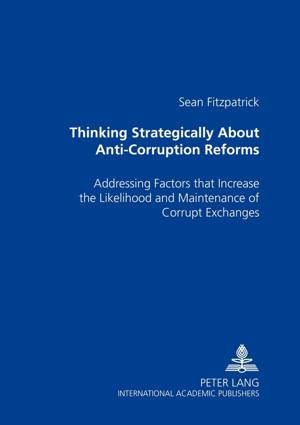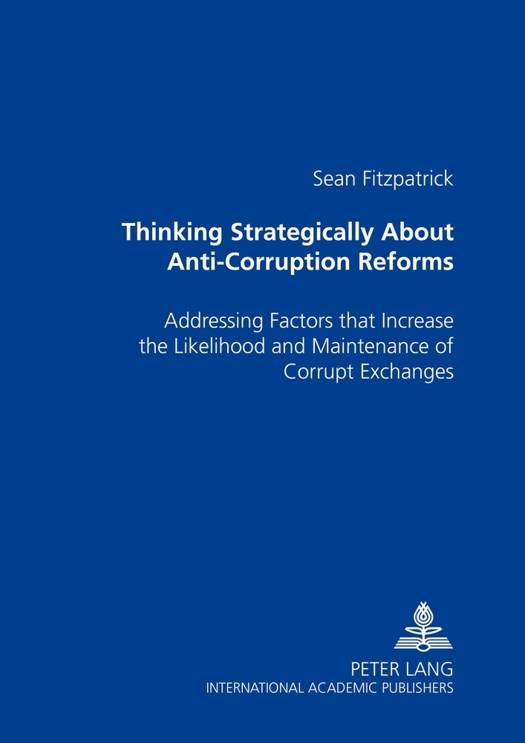
- Afhalen na 1 uur in een winkel met voorraad
- Gratis thuislevering in België vanaf € 30
- Ruim aanbod met 7 miljoen producten
- Afhalen na 1 uur in een winkel met voorraad
- Gratis thuislevering in België vanaf € 30
- Ruim aanbod met 7 miljoen producten
Zoeken
Thinking Strategically about Anti-Corruption Reforms
Addressing Factors That Increase the Likelihood and Maintenance of Corrupt Exchanges
Sean Fitzpatrick
Paperback | Engels
€ 128,95
+ 257 punten
Omschrijving
In recent years controlling corruption has taken on an increasingly important role in social consciousness, policy debate and reform initiatives. Domestic measures in many countries are reshaping the legal and institutional environment in which government operate, as are recent multilateral initiatives by governments, private organizations and nonprofits alike. There are many possible reform measures that may be undertaken, which are discussed and developed here. Some reform measures are purely managerial, others are administrative, legal, social or political in nature. Corrupt exchanges must be understood within the broader perspective of reciprocal rewards and sanctions, often firmly entrenched with regular (legal), social and economic transactions. Curbing corruption is, therefore, an arduous task, requiring a multi-pronged approach and an understanding of the nature and mechanisms of exchange. There is no simple «road map» to successfully overcoming corruption and it is often difficult to distinguish between poor results induced by either nonfeasance (shirking), corruption, maladministration or plain erroneous decisions. To wit, as a general principal however, what is useful to improve governmental performance is useful to mitigate corruption.
Specificaties
Betrokkenen
- Auteur(s):
- Uitgeverij:
Inhoud
- Aantal bladzijden:
- 420
- Taal:
- Engels
Eigenschappen
- Productcode (EAN):
- 9783631513934
- Verschijningsdatum:
- 3/02/2004
- Uitvoering:
- Paperback
- Formaat:
- Trade paperback (VS)
- Afmetingen:
- 147 mm x 208 mm
- Gewicht:
- 539 g

Alleen bij Standaard Boekhandel
+ 257 punten op je klantenkaart van Standaard Boekhandel
Beoordelingen
We publiceren alleen reviews die voldoen aan de voorwaarden voor reviews. Bekijk onze voorwaarden voor reviews.











